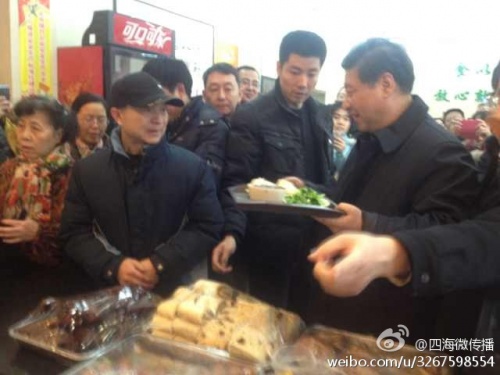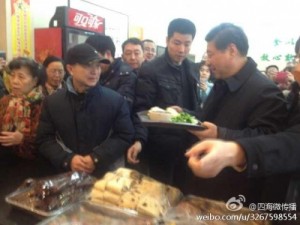The Word of the Week comes from the Grass-Mud Horse Lexicon, a glossary of terms created by Chinese netizens and encountered in online political discussions. These are the words of China’s online “resistance discourse,” used to mock and subvert the official language around censorship and political correctness.
习包子 (Xí Bāozi): Steamed Bun Xi
Nickname for Xi Jinping.
In late December 2013, President Xi dined at a Beijing chain restaurant that serves up steamed buns (包子 bāozi) in a room full of surprised patrons. The president waited in line, ordered his meal—six pork and green onion steamed buns, liver soup, and mustard greens—paid, and carried his own tray to a table. Over 400 customers lined up at the Qingfeng Steamed Bun Shop the next day to order Xi’s meal, which soon sold out.
Netizens are of two minds about Xi’s lunch: some said it demonstrated his concern for the average Chinese citizen, while others thought it was no more than a “political show” (政治作秀 zhèngzhì zuòxiù). Xi’s simple meal recalled the humble lunch of noodles enjoyed by Joe Biden and Ambassador Gary Locke in August 2011, and prompted some netizens to recall U.S. presidents’ tendency to stage publicity stunts at hamburger restaurants.
Weibo users searched for symbolic meaning in the dishes Xi ordered. Mustard greens (芥 jiècài), sounds like “beware of wealth,” perhaps a signal that Xi was serious about cracking down on official corruption. But the trial of rights defense lawyer Xu Zhiyong in late January called into question Xi’s commitment to rule of law.










